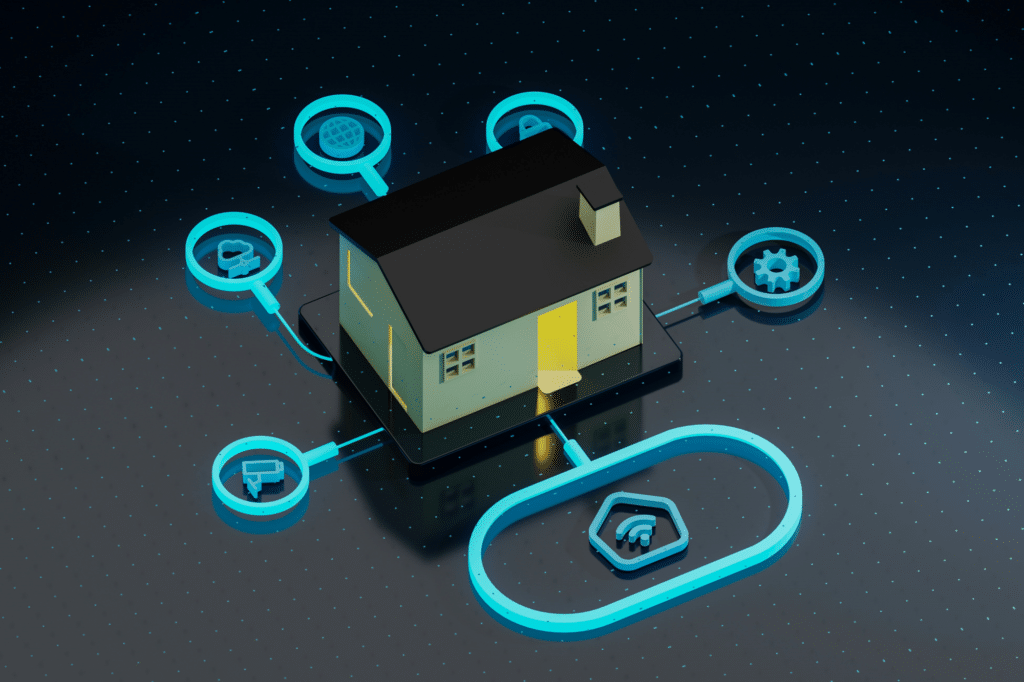By: Olivia Larson
Innovations are changing how we buy, sell, and manage property. The real estate industry, long known for its traditional ways, is now embracing a tech revolution that’s here to stay. Imagine touring a new home without stepping outside, thanks to virtual reality.
These advancements are transforming how we think about real estate altogether. As new technologies emerge, they’re simplifying processes and creating new opportunities for investors, buyers, and sellers. Utah real estate investor, Mike Robinson explores how these innovations are making waves and what they mean for the future of real estate.
Emerging Technologies in Real Estate
The real estate industry is undergoing huge changes thanks to technology. New tools and innovations are reshaping how properties are bought, sold, and managed. Artificial Intelligence (AI) and Machine Learning (ML) are game changers in the real estate market.
These technologies help with property valuation by analyzing tons of data quickly. They consider factors like location, size, market trends, and even crime rates to provide a more accurate price estimate. Predictive analytics is another area where AI shines. By using past data, AI can forecast future market trends. This can help investors make smarter decisions about where and when to buy or sell properties. It’s like having a crystal ball, but way more reliable.
Customer service also gets a boost from AI. Chatbots can handle multiple inquiries at once, providing instant responses to potential buyers. Virtual assistants can schedule viewings, answer questions, and even help with paperwork. This frees up real estate agents to focus on closing deals.
Virtual Reality (VR) and Augmented Reality (AR) are revolutionizing property tours and design visualization. With VR, potential buyers can take a virtual walk through a property from the comfort of their home. This is especially useful for international buyers or those relocating from far away.
“Augmented Reality adds another layer to this experience,” says Mike Robinson. “Imagine pointing your phone at an empty room and seeing it fully furnished. AR helps buyers visualize how a space can look and feel, which can speed up decision-making.”
These technologies enhance the buyer experience by making it more interactive and immersive. No more relying on static photos or floor plans; buyers can explore every nook and cranny of a property. This level of detail helps build trust and can lead to faster sales.
The Role of Big Data in Real Estate Decisions
Real estate professionals are leveraging big data to create more effective marketing strategies. With an abundance of information available, agents can now identify potential buyers and sellers with pinpoint accuracy. This isn’t just a matter of knowing who to market to but also understanding when and how to reach them.
Data analytics can help agents understand which neighborhoods are trending, what types of properties are in high demand, and even the price ranges that buyers are comfortable with. This information can be used to create targeted ads and content that speak directly to the needs and desires of potential clients.
Managing properties is no small feat, and data plays a vital role in optimizing these practices. Property managers can use data to improve various aspects of their operations, from maintenance schedules to tenant satisfaction. One significant advantage of big data is predictive maintenance.
Notes Mike Robinson, “By analyzing historical data, property managers can predict when an appliance or system is likely to fail. This allows them to perform maintenance before a minor issue becomes a major problem, saving time and money.”
Big data also aids in lease management and rent collection. By analyzing payment patterns, property managers can identify tenants who are at risk of defaulting and take proactive measures to prevent it. This could involve setting up payment plans or offering incentives for early payment.

Sustainability and Smart Building Technologies
Smart home technology is transforming the way we live. With the rise of the Internet of Things (IoT), home automation and security have become more advanced and accessible than ever before. These technologies are not just about convenience; they also improve security and energy efficiency.
With smart locks and cameras, you can monitor and control access to your home from anywhere. Smart lighting and thermostats help reduce energy consumption, which is not only good for the planet but also lowers utility bills.
For real estate agents and homeowners, smart home integration can significantly boost property value and marketability. Buyers are increasingly looking for homes that offer these modern amenities, making it a wise investment for anyone looking to sell in the future.
Sustaining Environmental Impact
Green technologies are becoming a pivotal part of the real estate landscape. As awareness of environmental issues grows, the demand for sustainable properties is on the rise. Buildings consume a significant amount of energy, but green technologies like solar panels, energy-efficient windows, and improved insulation can reduce this consumption dramatically.
Installing low-flow fixtures and rainwater harvesting systems can significantly reduce water usage, which is crucial in areas prone to drought. Building with recycled, renewable, or locally sourced materials can lower the environmental impact of construction and create healthier living environments through reduced emissions of volatile organic compounds (VOCs).
Sustainable properties often enjoy higher market values and quicker sales. Buyers are increasingly willing to pay more for homes that are environmentally friendly and energy-efficient. In many cases, these upgrades can pay for themselves over time through savings on utility bills and possible tax incentives.
Future Trends in Technology and Real Estate
One of the noticeable changes in recent years is the shift to remote work. This trend has had a significant impact on both home buying trends and commercial real estate demands. Remote work has allowed many people to move away from crowded urban centers.
With the flexibility to work from anywhere, homebuyers are now looking for properties in suburban or even rural areas. On the other hand, commercial real estate has been hit hard. With fewer employees commuting to the office, the demand for commercial spaces has decreased. Companies are rethinking their office needs, opting for smaller, more flexible spaces or even shared co-working environments.
Artificial Intelligence (AI) is making waves in real estate market predictions. AI algorithms analyze vast amounts of data to identify trends and make forecasts, which can be incredibly valuable for investors and real estate professionals.
Tech innovations will keep redefining how we buy, sell, and manage properties. The pace of change may be rapid, but it brings a wealth of opportunities. Those who adapt will not only survive but thrive. Stay informed, stay adaptable, and keep an eye on emerging trends. The real estate industry is on the brink of a tech-driven revolution, and its impact will be profound.
Published By: Aize Perez








